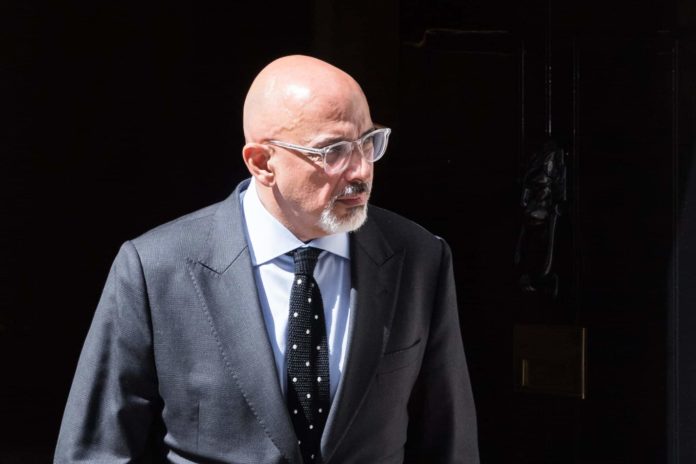Sajid Javid, Liz Truss and Rishi Sunak are among the senior Tories running to be party leader. (Hollie Adams/Christopher Furlong/Peter Summers/Getty)
Britain’s next prime minister has a low bar to clear when taking over from Boris Johnson on equalities. Here’s where the Tory leadership candidate stand on LGBTQ+ rights.
The candidates running for Tory leadership range from relatively unknown to figures to those who have dominated political discourse in the UK in recent years.
Most have had something to say when it comes to the increasingly thorny issue of LGBTQ+ rights. Some have repeatedly spoken out against trans rights, while others have actively halted much-needed legislative reforms that would have benefited the community.
As the Tory leadership race continues to gather pace, we take a look at the 10 candidates still in the running and assess their LGBTQ+ track record.
1. Nadhim Zahawi
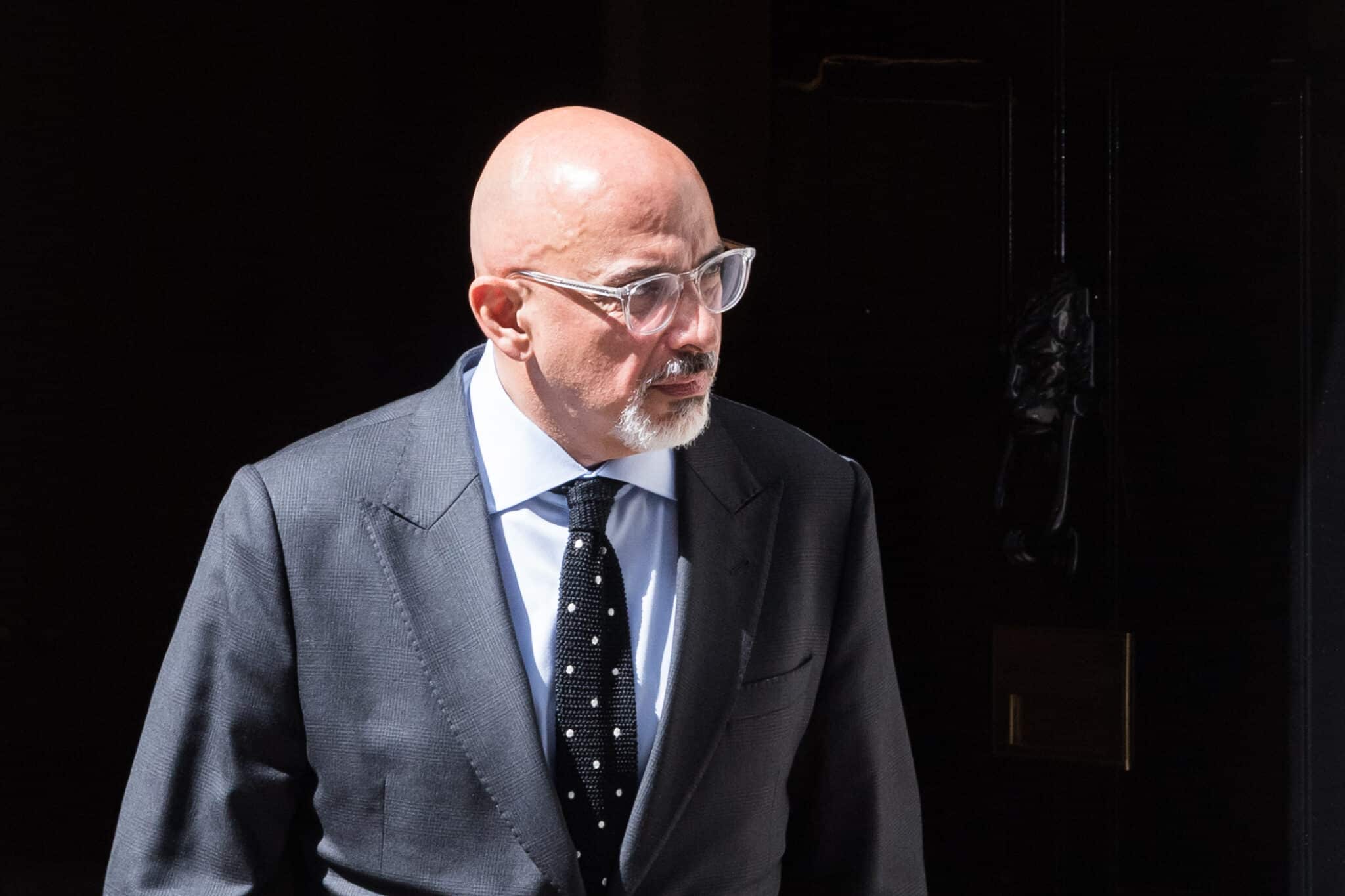
Nadhim Zahawi hasn’t got the best track record when it comes to LGBTQ+ rights.
During his tenure as education secretary, Zahawi faced backlash from LGBTQ+ activists for suggesting teachers should out trans children to their families.
His voting record on TheyWorkForYou.com shows that he’s repeatedly voted in favour of stricter asylum policies, which have a knock-on effect on LGBTQ+ people fleeing persecution. Speaking to The Telegraph shortly after announcing his leadership bid, Zahawi confirmed that he would push ahead with the current strategy to deport refugees to Rwanda if he becomes the UK’s next prime minister.
However, he has supported same-sex marriage – Zahawi has consistently voted in its favour, and he voted to extend equal marriage to Northern Ireland in 2019.
2. Kemi Badenoch
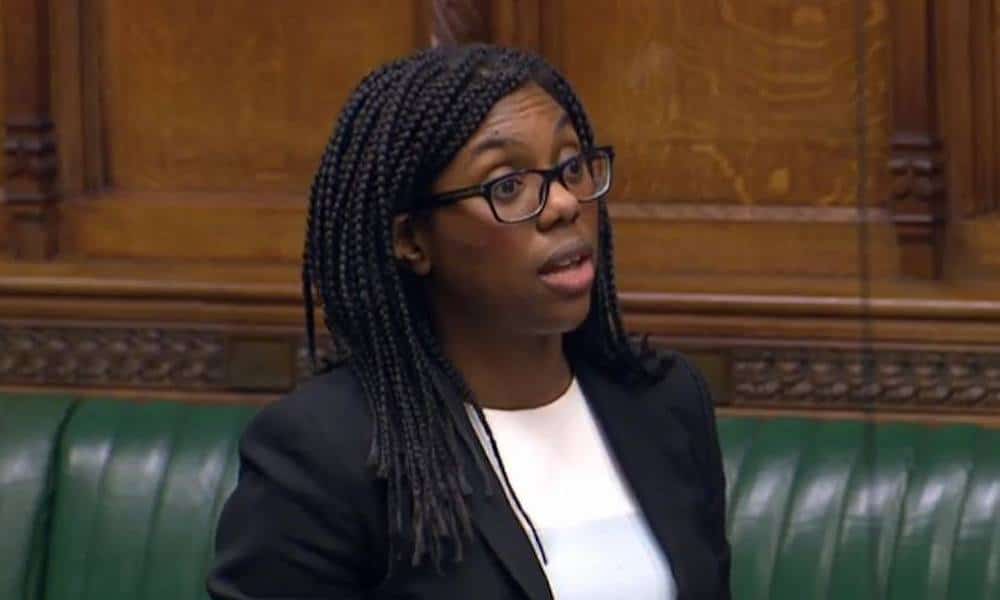
Kemi Badenoch served as junior equalities minister from 2020 until 6 July, when she join an en masse resignation from Johnson’s government, but she did little to advance LGBTQ+ rights in that time.
During her tenure, the Equalities Office dithered and delayed on conversion therapy legislation. In the background, she secretly met with the LGB Alliance, an organisation which campaigns against trans rights, and she was allegedly instrumental in setting up a meeting between government officials and an organisation that advocates for conversion therapy.
Elsewhere, Badenoch jumped to the defence of former Sussex University professor Kathleen Stock, who resigned her position after students protested her “gender critical” views. Badenoch said Stock was “probably in step with the majority of the population”.
Launching her campaign, Badenoch described herself as a “nimble, centre-right candidate” who will “tell the truth” to the people of the UK.
She also defended Britain against claims that it is “oppressive to minorities”, saying the country simply “enforces its own borders”.
3. Suella Braverman

Suella Braverman has faced stinging criticism from LGBTQ+ campaigners for her anti-trans comments, which intensified during her time as attorney general in Boris Johnson’s government.
In May, Braverman claimed schools in England don’t have to accommodate trans students who want to transition, saying they were under no legal obligation to use their correct pronouns or let them wear an alternative uniform.
Strikingly, Braverman also told The Times that some teachers were encouraging students to be trans because of their “unquestioning” stance.
In July, just days before Boris Johnson’s resignation, Braverman told The Sunday Telegraph that gender dysphoria is spreading by “social contagion” in schools.
Notably, she also said Westminster could try to block the Scottish government’s plans to reform the Gender Recognition Act (GRA), a long-promised plan that would simplify and streamline the process for trans people in Scotland.
She went on to criticise the Equality Act for the protections it affords to trans people, claiming that “the risks… of social transitioning were not anticipated”.
Braverman – who became the first Tory candidate to enter the leadership race – has called on the UK to withdraw from the European Court of Human Rights (ECHR) after it blocked the deportation of asylum seekers to Rwanda in June.
4. Sajid Javid
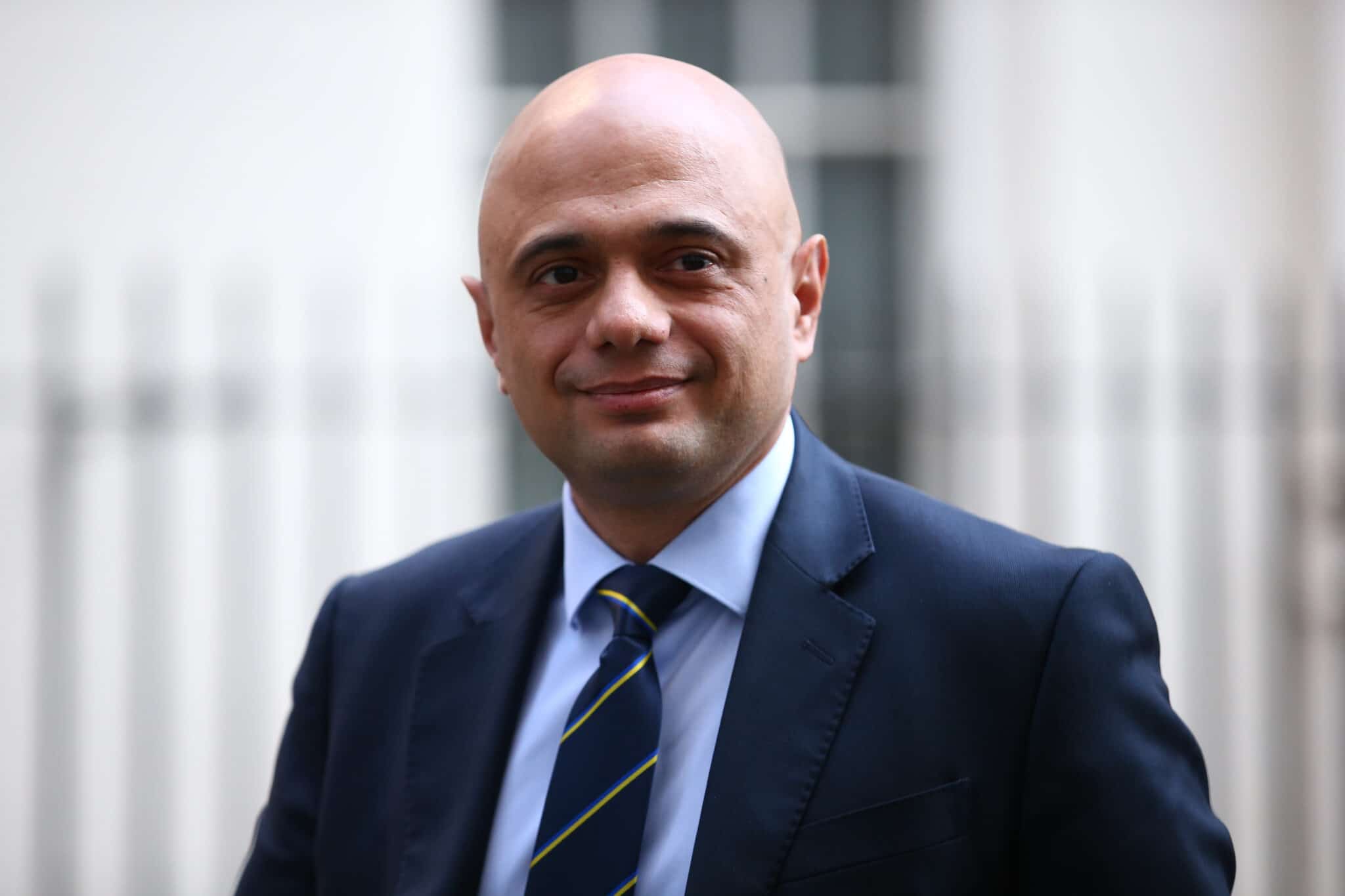
During his time as health secretary (from June 2021 until his July resignation), Sajid Javid repeatedly came under fire for his inflammatory remarks about trans people – particularly trans kids.
In April, Javid said NHS services for trans children were “overly affirmative” and were “bordering on ideological”. Just weeks earlier, he suggested that trans children might not actually be trans, but could instead be suffering as a result of child sexual abuse or bullying.
Javid has also spoken out against the use of inclusive language in healthcare settings, telling Sky News in June: “You won’t be surprised to know as the health secretary I think your sex matters, your biological sex is really important so you get the right treatment, the very best treatment.”
While Javid has lurched towards anti-trans sentiment, he hasn’t always been that way – in 2018 he told a PinkNews reception that he wanted to build a Britain “where everyone feels comfortable – whatever your sexual orientation or gender identity”.
He also voted in favour of same-sex marriage and like some of his Tory colleagues, has expressed support for gay rights.
5. Penny Mordaunt
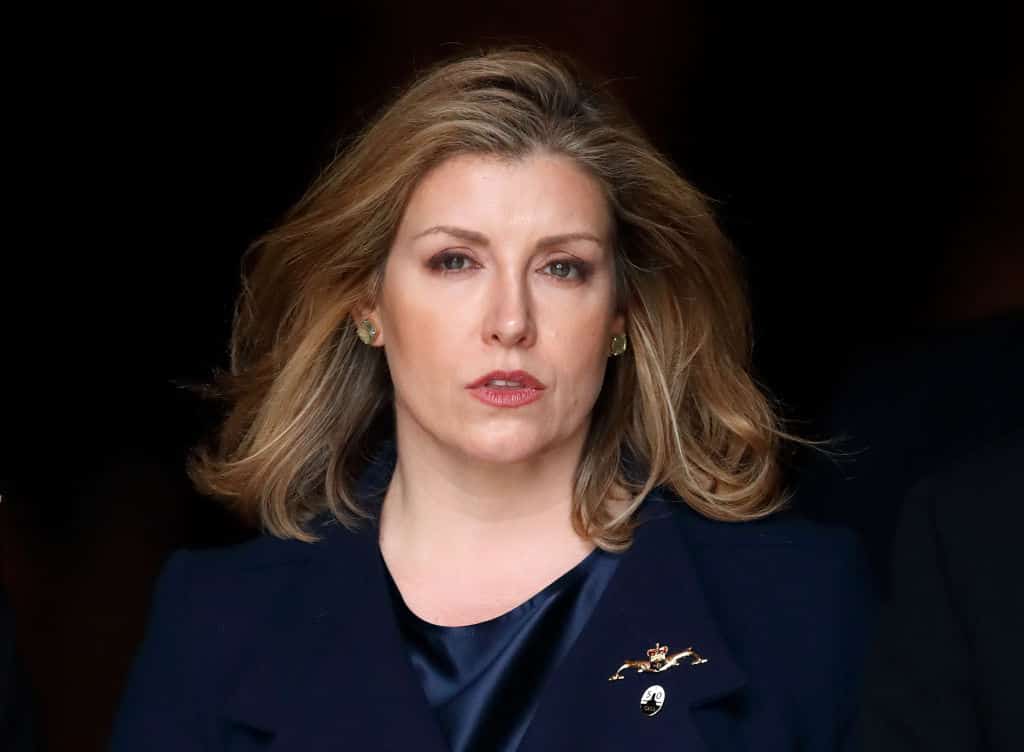
Just months ago, Penny Mordaunt seemed like the only potential Conservative leader who could advance and champion LGBTQ+ rights.
During her time as equalities minister, between 2018 and 2019, Mordaunt oversaw a public consultation on the Gender Recognition Act (GRA). That consultation showed strong support for reform that would streamline the process, but it wasn’t to be – planned changes were later scrapped when Liz Truss took over the post.
In 2020, Mordaunt said seeing the prejudice her gay twin brother James faced when he came out as gay in the 1980s inspired her to become an ally.
“I see a direct parallel between what he went through and what the trans community are going through today, which is why I think it is really important that we show our support at every opportunity,” she said at the time.
That all changed when Mordaunt launched her leadership bid, following Johnson’s resignation. In a lengthy Twitter thread, the MP answered the question: “Do I know what a woman is?”
She spoke out about her opposition to the “trans orthodoxy”, saying biology is “overwhelmingly important” when it comes to trans inclusion in sport. She also said that, while trans women can be declared legally female, “that DOES NOT mean they are biological women, like me”.
Mordaunt was widely condemned by LGBTQ+ activists for her comments, and immediately lost a wave of support within the community.
6. Rishi Sunak
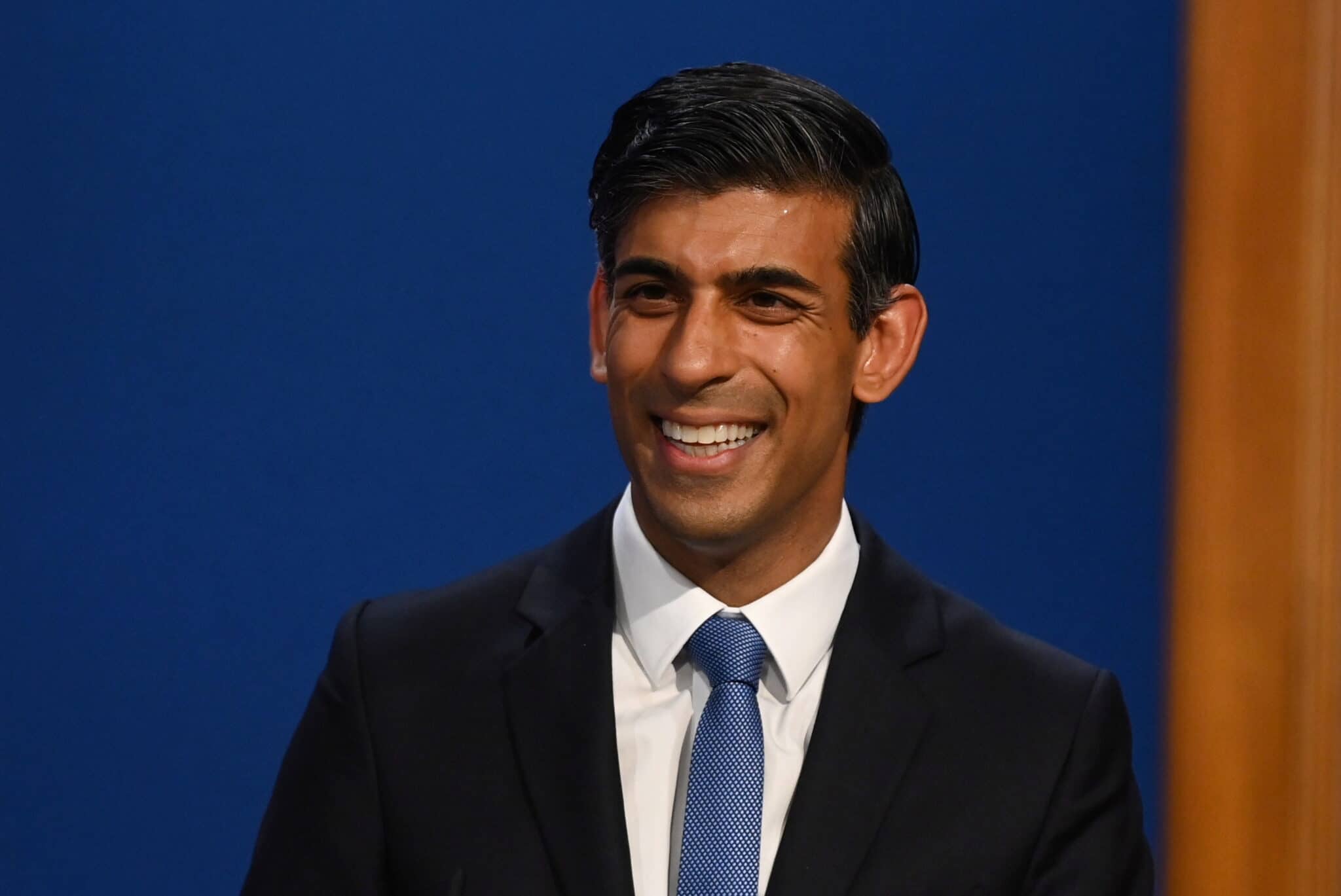
Rishi Sunak is among the favourites to win the Conservative leadership, but his track record on LGBTQ+ issues isn’t exactly stellar.
Ahead of launching his campaign, an “ally” of the former chancellor of the exchequer told the Mail on Sunday that he will reverse “recent trends to erase women via the use of clumsy, gender-neutral language” if he wins the Tory leadership.
The ally was quoted as saying: “He believes we must be able to call a mother a mother and talk about breastfeeding, alongside trans-inclusive language where needed.” Sunak is said to be considering banning trans women from women’s sport in the name of “fairness”.
Speaking during a Mumsnet Q&A in April, Sunak said trans people should be “respected” but added that biology is “important” and “fundamental” when it comes to toilets and sports.
7. Liz Truss
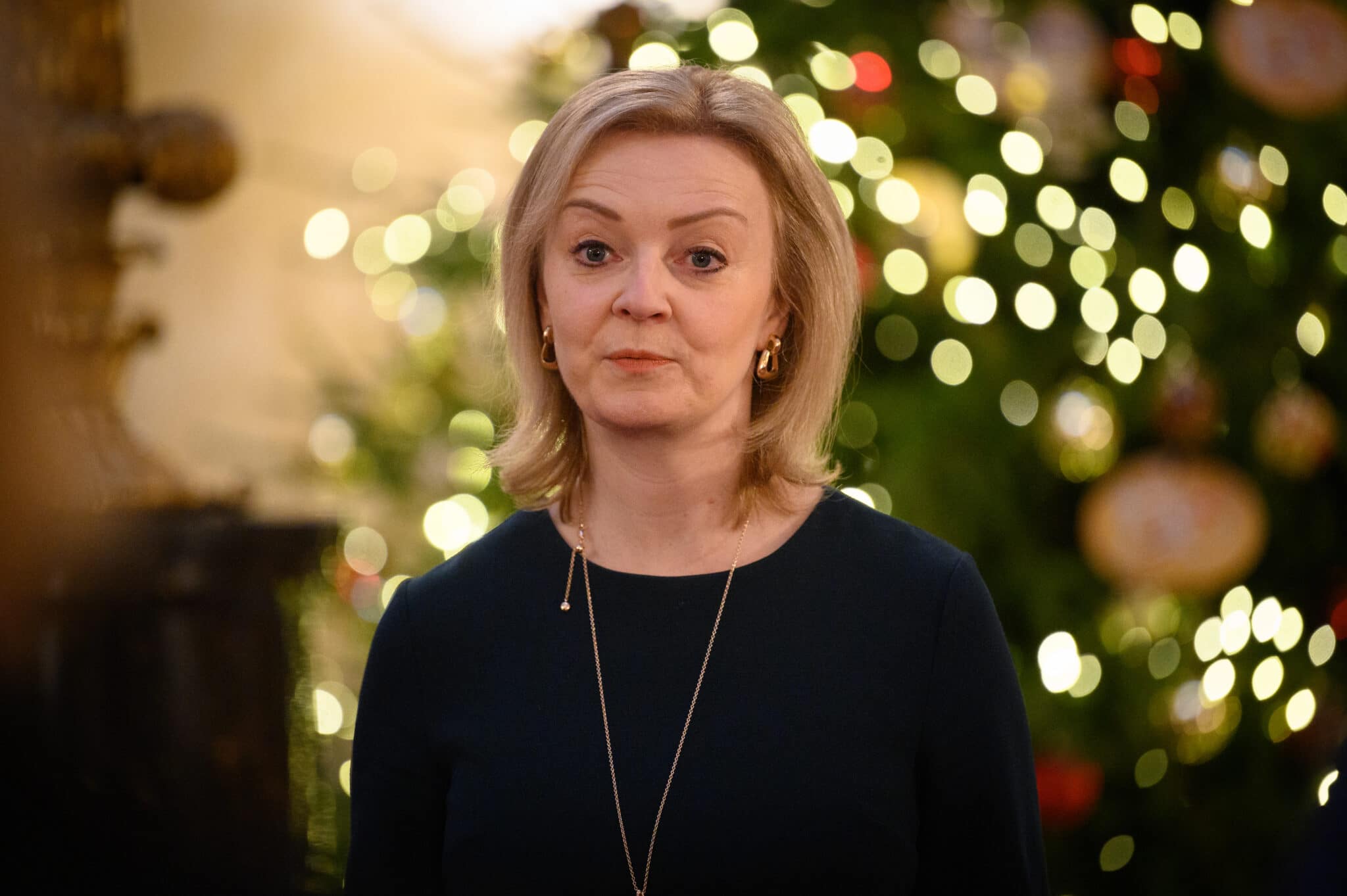
Liz Truss is just one of the senior Conservatives whose name has been repeatedly floated as a potential successor to Boris Johnson in recent months.
Truss, who serves as foreign secretary and as minister for women and equalities, is seen as popular in the Conservative Party, but she will likely have less support among LGBTQ+ people.
During her time in the equalities office, Truss has repeatedly hit out at “identity politics”, saying nobody wants to be a “token gay person” in a working environment – but perhaps her biggest failure lies in reforming the Gender Recognition Act (GRA).
In September 2020, Truss announced that she would not introduce self-identification for trans people. If adopted, it would have allowed trans people to change their legal gender without a diagnosis of gender dysphoria and without answering invasive questions about their bodies and their identity.
Truss abandoned those reforms despite a public consultation conducted under Mordaunt’s leadership which showed strong support for change.
There was also the fallout surrounding the disbandment of the LGBT Advisory Panel and her abject failure to ban all conversion therapy, despite repeated promises that she would do so.
8. Rehman Chishti

There’s not a whole lot to say about Rehman Chishti, who received his first ministerial post in Johnson’s frantic pre-resignation reshuffle.
He’s an obvious underdog in the leadership race, and is highly unlikely to acquire the necessary 20 nominations to process in the race.
Unlike some of his party colleagues, Chishti opposed same-sex marriage – he voted against allowing gay couples to marry in England, Wales and Northern Ireland, but he hasn’t said a whole lot more on LGBTQ+ issues.
His voting record on TheyWorkForYou.com also shows that he has voted consistently in favour of stricter asylum policies and has generally voted against measures to tackle climate change.
9. Tom Tugendhat

Tom Tugendhat, a Tonbridge and Malling MP who has served on the Foreign Affairs Committee since 2017, was quick to announce his candidacy for the Conservative leadership, saying the UK needs “a clean start”.
Throughout his political career, Tugendhat has generally expressed support for LGBTQ+ rights. He voted in favour of extending equal marriage to Northern Ireland in 2019 and in 2021 expressed support for a ban on conversion therapy.
He has spoken out in favour of LGBTQ+ people serving openly in the British Army, and most recently, said politicians should “move on” from debates around trans lives.
“A woman is an adult human female, but that doesn’t mean in any way that trans women have any less respect or any fewer rights,” Tugendhat said when asked on Sky News if trans women are women.
“The idea that you can answer this question with a sledgehammer when really what you’re talking about is a very subtle understanding of people’s rights, people’s dignity, and the respect we need for each other, I’m afraid is not true.
“We must never take away from human dignity, we must never deny the reality of what it is to be a biological woman, but we must also respect people who are in a different gender identity than their body may have afforded them.”
10. Jeremy Hunt

Former health secretary Jeremy Hunt came second in the last Tory leadership race behind Boris Johnson, but that hasn’t deterred him from taking a second stab at the top job.
A Conservative Party member told PinkNews that Hunt had been on “a journey of understanding” on LGBTQ+ issues. In 2019 he spoke out in favour of LGBTQ+ inclusive education for children and he has voted to advance LGBTQ+ rights.
Hunt is seen as a more moderate Tory who could advance greater protections for LGBTQ+ people, but it’s still unclear what his position is on key policy issues such as a fully-inclusive conversion therapy ban and Gender Recognition Act (GRA) reform.

